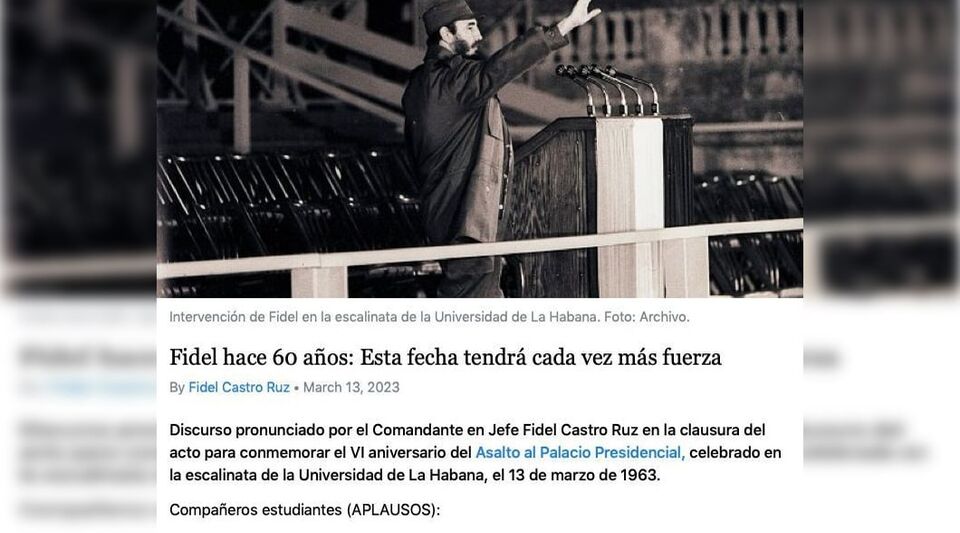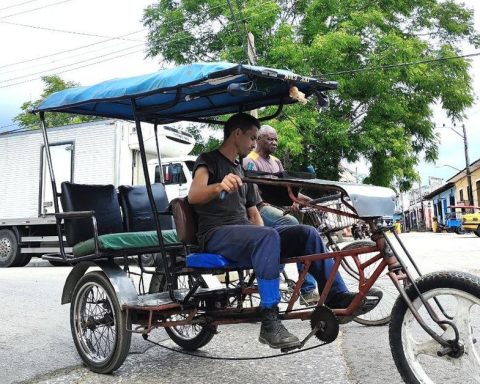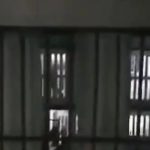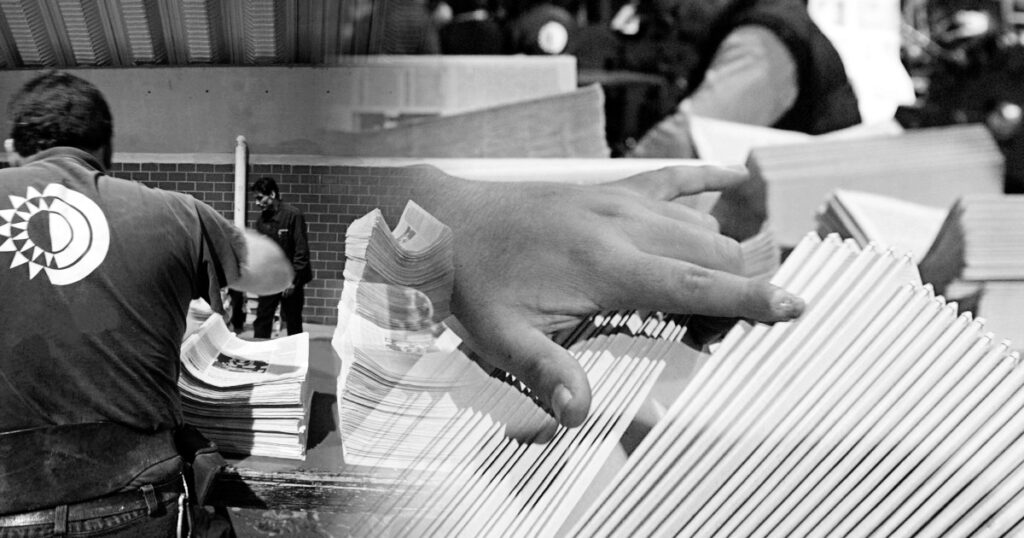University of Havana, March 13, 1963. Fidel Castro settles at the podium, placed on the steps in front of thousands of students. In suits, with strong faces, are President Dorticós, the geographer and adventurer Antonio Núñez Jiménez, the youth leader José Rebellón and the parents of Camilo Cienfuegos, who died a few years before. He makes a long speech. The next day, the press repeats the same headline: Castro promises a “strong hand” for the “lazy”, the “lazy”, the “religious”, the “pitusas”, the “lumpen” and all kinds of “worms”.
Sixty years later – this Monday – the regime’s press dusted off what was one of the most sinister speeches the caudillo gave after 1959. This Tuesday morning, the publication, broadcast as a special on cubadebate, had been removed without any explanation. The speech, however, remains accessible with the link of the cached version created by Google and that cubadebate cannot delete.
The so-called “Speech on the Staircase”, which led to the creation of the Military Support Units for Production (UMAP) and the persecution of homosexuals, members of different religions and “deviant” intellectuals, has been tried to qualify and even justify.
Figures like Mariela Castro Espín, niece of the leader and founder of the National Center for Sexual Education (Cenesex) have not looked favorably on Castro’s attack on homosexuals and try to attribute his intolerance to the “time” and not to a political strategy. .
Why are you interested in rescuing the regime from an oratory piece that ends up calling for the execution of Jehovah’s Witnesses and capital punishment for common criminals? The answer, given by the context of ideological radicalism that drives the Communist Party today, is disturbing.
Leaf through the newspapers of the time or the popular magazine Bohemia allows you to take the pulse of the time. Military slogans, threats against any “elvispreslianas” attitude – Castro’s barbarism that went down in history –, interviews with leaders and news from the Soviet Union. Even the graphic humor is eminently misogynistic and sexual, to reaffirm the mandate of the leader: 1963 had to be, even “to the gun”, the Year of Organization in all areas of life.
When Castro took the university podium, it was supposed to commemorate the sixth anniversary of the death of José Antonio Echeverría and the young people who took over the Presidential Palace and the Radio Reloj station in 1957. After the failure of the attack against the dictator Batista, the group ended brutally murdered.
However, the commander dedicated a mention to Echeverría – a Catholic leader with a strong personality, whom Castro always saw as a rival – to “apologize” for having allowed a group of radicals to delete “an invocation to God” from the young man’s will. That act, he said, was “wrong and not revolutionary.”
Immediately afterwards, the “commemorative” speech took a spectacular turn and settled on the problems of the present. The forced foot was the religiosity of Echeverría himself: “Today I am going to talk about others who, invoking God, want to make a counterrevolution.”
Castro accused them of being superstitious, of offending the country and the flag, and then asked what should be done with them for “preaching nonsense.” No young man hesitated: “Stop it!”
In a couple of sentences, he neutralized the hierarchy of Catholic bishops, who had published furious letters against the infiltration of Soviet communism on the island. His government, he assured, “did not close churches, did not hinder the activities of any priest willing to carry out his duties properly religious, and it can even be said that the conflicts between the Revolution and the Catholic Church began to disappear”.
The waters had “taken their level” with the bishops, Castro lied. His true objective was another: Jehovah’s Witnesses, the Gideon Evangelical Band and the Pentecostal Church, three “Yankee sects” that had penetrated the Cuban camps and, to the disgust of the military, proposed peaceful civil disobedience.
They drove him crazy, he admitted. “When you have to pick cotton, or coffee, or cane, or a special job, and the masses mobilize on a Sunday, or a Saturday, or any other day, then they arrive and say: ‘Don’t work on the seventh day’. And then, under the religious pretext, they began to preach against voluntary work”, or else, they said: “Don’t use weapons, don’t defend yourself, don’t be a militiaman”.
Castro accused them of being superstitious, of offending the country and the flag, and then asked what should be done with them for “preaching nonsense.” No young man hesitated: “Ward!”.
It was only the beginning of the speech. The then Prime Minister went on to talk about other evils that “the capitalist past” had bequeathed to them, and how a line had to be drawn between that and the revolutionary present.
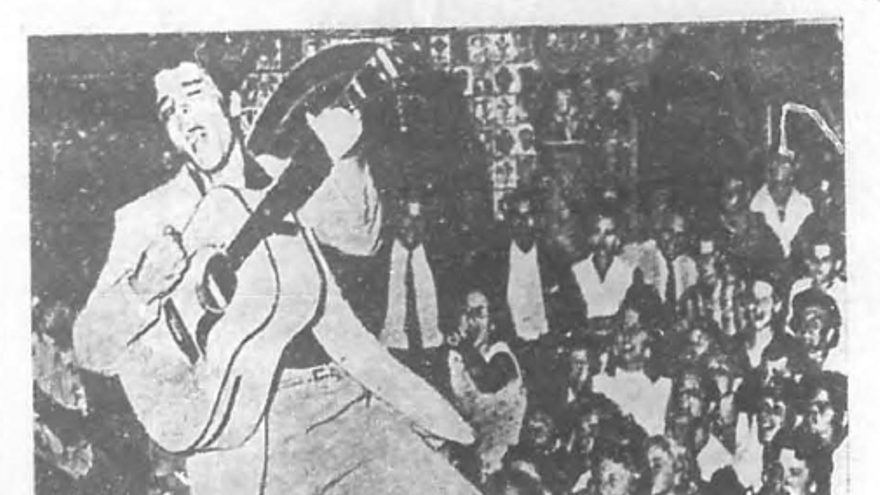
Numerous “infectious pockets” remained, made up of “antisocials, thieves, pickpockets and parasites.” He assured that the Police had been corrupted and the judges were lax in their sentences. “Result: the need to take severe measures,” he said, asking the crowd what measures should be taken. Once again, drunk with enthusiasm, the university students answered: “Capital punishment!” and also: “Fidel, wall for the thief!”
Satisfied, Castro upped the ante. What could be done, then, with the boys who met in the “billiards” and other recreational establishments, “full of bums and lumpen”? With the prostitutes, dedicated to the “disgusting trade”? And with the rest of the religious? He invited anyone who wanted to go to the United States to leave. “What do you expect?” he asked and his audience burst into laughter.
The “lazy” who dare to stay, he settled, “we understand that they must go to do physical work, which is what is most needed at this time, and that they go to work in agriculture”, as a “reinforcement, And not in a big way!”
Then he pronounced the most famous phrase of his speech, the one that would decide the fate of thousands of young people in the sixties and that today the official press repeats with all intention, about what he called a social “by-product” of 15 or 16 years: ” Many of these lazy pepillos, children of the bourgeoisie, walk around wearing too tight shorts; some of them with a little guitar in ‘elvispreslianas’ attitudes, and who have taken their debauchery to the extreme of wanting to go to some places of public gathering to organize their shows feminoides for free”.
With the harangue against “weak legs” and “trees that were born crooked” he left the podium. She left them, she said, a great lesson: “All the worst come together.”
With the harangue against “weak legs” and “trees that were born crooked” he left the podium. She left them, she said, a great lesson: “All the worst come together. Never forget it, never forget it.”
In 1965, the Umap system was already active in Camagüey. “We have made our calculations,” Castro warned about that measure and its impact on the “new man” that the Revolution wanted. Thanks to a speech that has just turned 60, notable figures of Cuban culture paraded through the Umap, such as the future Cardinal Jaime Ortega, the troubadour Pablo Milanés and the writer Reinaldo Arenas.
On December 31, 1963, Arenas – a fan of the “world of Havana show business” – hugged his lover, a young man named Miguel, and wished him a happy new year despite the “sexual persecution.” Miguel returned the hug between tears and told him: “It’s incredible that Fidel has already been in power for four years.”
“Unhappy,” writes Arenas, remembering that hug. “He thought that time was too long. He ended up arrested and taken to one of the concentration camps. I never saw him again.”
________________________
Collaborate with our work:
The team of 14ymedio He is committed to doing serious journalism that reflects the reality of deep Cuba. Thank you for accompanying us on this long road. We invite you to continue supporting us, but this time becoming a member of our newspaper. Together we can continue transforming journalism in Cuba.
